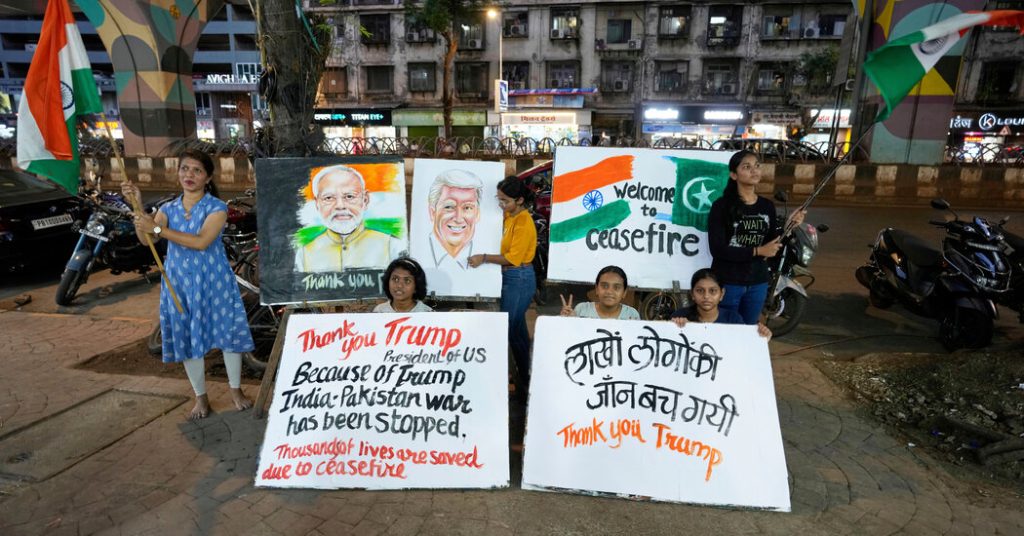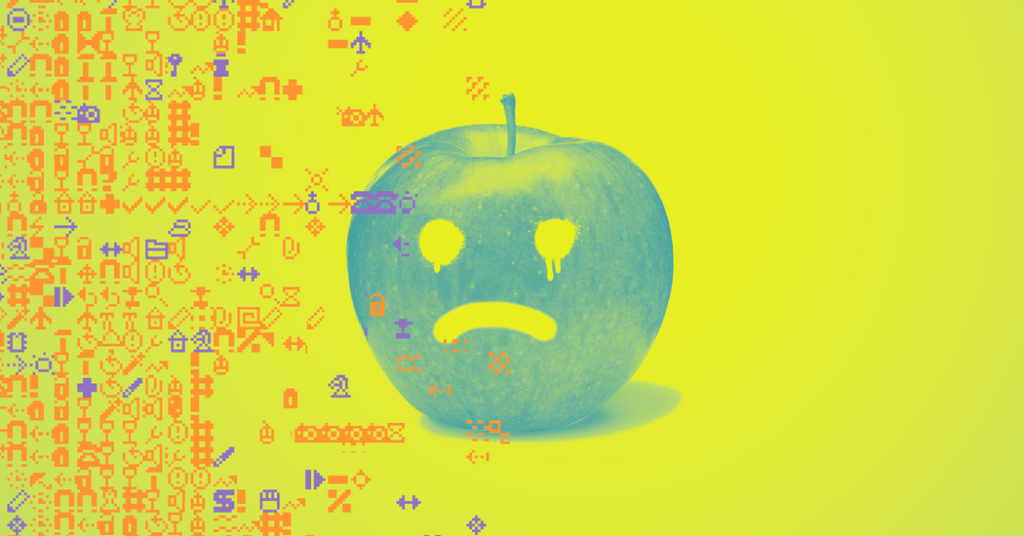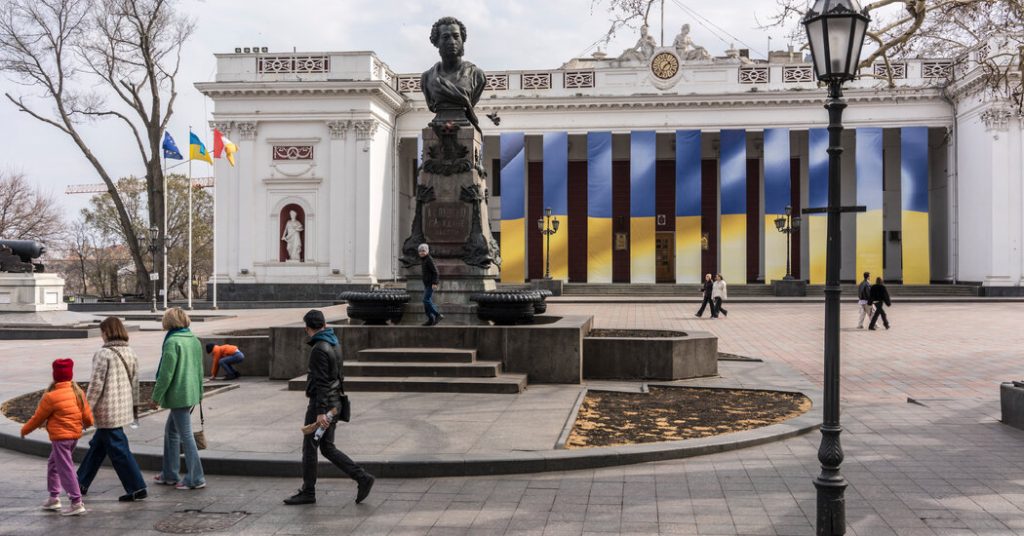
Together with Japan and South Korea, China has one of the lowest fertility rates in the world.Credit…Qilai Shen for The New York Times
China’s twin crises
At the World Economic Forum in Davos, Switzerland, China sought to reassure the world that its economy was back on track. A delegation told world leaders that business could return to normal now that the country has relaxed its “zero Covid” policy.
But China’s projected resilience does not align with two major revelations about its long-term health and stability.
-
Yesterday, China revealed that its economy had just had one of its worst performances since 1976, the year Mao Zedong died. Its economy grew by just 3 percent, far short of its 5.5 percent target.
-
Perhaps more consequential, China also revealed that its population had shrunk last year for the first time since the Great Leap Forward, Mao’s failed economic experiment.
In the population data, experts see major implications for China, its economy and the world. Births in China have fallen for years, and officials have fought to reverse the trend. They have loosened the one-child policy and offered incentives to encourage families to have children. Those policies did not work. Now, some experts think the decline may be irreversible.
A shrinking Chinese population means that the country will face labor shortages in the absence of enough people of working age to fuel its growth. By 2035, 400 million people in China are expected to be over 60, nearly a third of its population. That will have major implications for the global economy; the country has been the engine of world growth for decades.
Context: The problem is not limited to China. Many developed countries are aging, and toward the middle of this century, deaths will start to exceed births worldwide. The shift is already starting to transform societies. In East Asia, people are working well into their 70s, and in France, an effort to raise the retirement age from 62 to 64 is expected to expose older workers to hiring discrimination.
Opinion: China’s population decline creates two major economic challenges, writes Paul Krugman. The state pension system will struggle to handle the unbalanced ratio of older adults to the working population. And the decline may harm China’s overall productivity.
The Ukraine war dominates at Davos
The war in Ukraine is taking center stage at the World Economic Forum in Davos, Switzerland, as Ukraine pushes for more aid and advanced weapons from the West.
Olena Zelenska, Ukraine’s first lady, is there in person. Yesterday, she called on world leaders and others at the forum to use their influence to help Ukraine. She also outlined the 10-point peace plan that her husband, President Volodymyr Zelensky, announced last fall, which includes Russia’s complete withdrawal.
Pressure is now growing on Germany to export its main battle tank to Ukraine, or allow other countries to do so. Poland and Finland are waiting for Germany’s approval to send the German tanks, which could help Ukraine better defend itself against Russian aerial attacks and take the initiative along the front line in the east.
The State of the War
- Dnipro: A Russian strike on an apartment complex in the central Ukrainian city was one of the deadliest for civilians away from the front line since the war began. The attack prompted renewed calls for Moscow to be charged with war crimes.
- Western Military Aid: Britain indicated that it would give battle tanks to Ukrainian forces to help prepare them for anticipated Russian assaults this spring, adding to the growing list of powerful Western weapons being sent Ukraine’s way that were once seen as too provocative.
- Soledar: The Russian military and the Wagner Group, a private mercenary group, contradicted each other publicly about who should get credit for capturing the eastern town. Ukraine’s military, meanwhile, has rejected Russia’s claim of victory, saying its troops are still fighting there.
What’s next: The dispute over German-made tanks should be resolved by the end of the week. Vocal U.S. support could help sway Germany. Yesterday, a senior NATO official said that Britain’s recent announcement that it would send 14 tanks to Ukraine was making Germany’s reluctance untenable.
Context: Ukraine and its allies are growing more worried that there is only a short window to prepare for a possible Russian offensive in the spring.
Elsewhere: The Australian Open banned Belarusian and Russian flags yesterday. It has allowed tennis players from those countries to compete, but not as representatives of their country.
A referendum on Peru’s democracy
Protests in rural Peru that began more than a month ago over the ouster of the former president, Pedro Castillo, have grown in size and in the scope of demonstrators’ demands.
The unrest is now far broader than anger over who is running the country. Instead, it represents a profound frustration with the country’s young democracy, which demonstrators say has deepened the country’s vast inequalities.
At first, protesters mainly sought timely new elections or Castillo’s reinstatement. But now at least 50 people have died, and protesters are demanding a new constitution and even, as one sign put it, “to refound a new nation.”
“This democracy is no longer a democracy,” they chant as they block streets.
Background: Peru returned to democracy just two decades ago, after the authoritarian rule of Alberto Fujimori. The current system, based on a Fujimori-era Constitution, is rife with corruption, impunity and mismanagement.
Context: The crisis reflects an erosion of trust in democracies across Latin America, fueled by states that “violate citizens’ rights, fail to provide security and quality public services and are captured by powerful interests,” according to The Journal of Democracy. Just 21 percent of Peruvians are satisfied with their democracy, according to one study. Only Haiti fares worse in Latin America.
THE LATEST NEWS
Asia Pacific
-
A former Afghan lawmaker was fatally shot at her home in Kabul. No one has been arrested, and it was unclear whether it was a politically motivated murder or a family conflict.
-
New Zealand is facing an egg shortage. One reason is a decade-old disagreement about how to farm poultry.
-
Vietnam’s president resigned yesterday after he was found responsible for a series of corruption scandals, The Associated Press reports.
Around the World
-
Armed insurgents kidnapped 50 women in Burkina Faso, which has been battling a jihadist insurgency since 2015.
-
Britain’s government blocked a new Scottish law that made it easier for people to legally change their gender.
-
Experts think European inflation has probably peaked, after an unusually warm winter drove down gas prices.
Science Times
-
Efforts to treat adults for H.I.V. have been a major success across sub-Saharan Africa. But many infections in children are undetected and untreated.
-
Dolphins can shout underwater. But a new study suggests that underwater noise made by humans could make it harder for them to communicate and work together.
-
The rate of big scientific breakthroughs may have fallen since 1945. Analysts say that today’s discoveries are more incremental.
A Morning Read
The British aren’t the only ones with royal drama. Thailand, Norway, Denmark and Spain have zany monarchies, too.
ARTS AND IDEAS
Tough times for the old masters
The art market, like pretty much everything else in our culture, has become all about the here and now. European paintings from before 1850 were once a bedrock of the market. But now, works by the old masters make up just 4 percent of sales at Sotheby’s and Christie’s.
Instead, buyers increasingly want works by living artists. Last year, Sotheby’s, Christie’s and Phillips offered works by a record 670 “NextGen” artists, who are under 45. A January report found that their art grossed more than $300 million.
Experts say that younger collectors often regard art from the distant past as remote and irrelevant, and contemporary art reflects the fast-forward cultural preoccupations of our society. There may also be a financial incentive: Works by younger, Instagram-lauded artists are routinely “flipped” at auction for many multiples of their original gallery prices.
Related: A new book, “The Status Revolution,” argues that class signifiers have flipped. The lowbrow has supplanted luxury as a sign of prestige.
PLAY, WATCH, EAT
What to Cook
Instant pistachio pudding mix is the secret to this moist Bundt cake.
How to Negotiate
There is an art to asking for a raise.
Health
Is it bad to drink coffee on an empty stomach?
Fashion
Here’s how to choose the perfect work T-shirt.
Now Time to Play
Play the Mini Crossword, and a clue: Whole bunch (four letters).
Here are the Wordle and the Spelling Bee.
You can find all our puzzles here.
That’s it for today’s briefing. See you next time. — Amelia
P.S. Adrienne Carter, who has led our newsroom in Asia since 2019, will be the next Europe editor. Congratulations, Adrienne!
“The Daily” is on China’s “zero Covid” pivot.
We’d like your feedback! Please email thoughts and suggestions to briefing@nytimes.com.



